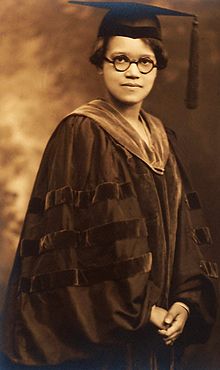Deadpool1986
Cook with a Mouth
Bishops (past and present)
The Four Horsemen: important bishops
Dr. Richard Allen Lewis, Treasurer/Chief Financial Officer
The Rev. Dr. Johnny Barbour, Jr., Secretary-Treasurer, AMEC Sunday School Union
The Rev. Dr. George F. Flowers, Secretary-Treasurer, Global Witness and Missions
The Rev. Dr. Jerome V. Harris, Executive Director, Annuity Investments and Insurance
The Rev. Dr. James C. Wade, Executive Director of Church Growth and Development
The Rev. Dr. Daryl B. Ingram, Secretary-Treasurer of Christian Education
The Rev. Dr. Calvin H. Sydnor III, the 20th Editor of The Christian Recorder, the official newspaper of the African Methodist Episcopal Church
The Rev. Dr. Jeffery B. Cooper, General Secretary/CIO
The Rev. Dr. Teresa Fry Brown, Director, Research and Scholarship and Editor of The A.M.E. Church Review
The Four Horsemen: important bishops
- Richard Allen, founder and first bishop (1816–1841)
- William Paul Quinn, fourth bishop (1849–1873)
- Daniel Payne, sixth bishop (1811–1893)
- Henry McNeal Turner, twelfth bishop (1834–1915)
- Gregory Gerald McKinley Ingram
- William Phillips DeVeaux Sr.
- McKinley Young
- John Richard Bryant
- Theodore Larry Kirkland
- Preston Warren Williams II
- Richard Franklin Norris
- Julius Harrison McAllister
- James Levert Davis
- Vashti Murphy McKenzie
- Adam Jefferson Richardson Jr.
- Samuel Lawrence Green Sr.
- Jeffrey Nathaniel Leath
- Clement W. Fugh
- David Rwhynica Daniels Jr.
- Sarah Frances Davis
- Wilfred Jacobus Messiah
- John Franklin White
- Paul J. M. Kawimbe
- Reginald T. Jackson & The Office of Ecumenical Affairs
- John Hurst Adams
- Richard Allen Hildebrand
- Frederick Hilborn Talbot
- Hamil Hartford Brookins
- Vinton Randolph Anderson
- Frederick Calhoun James
- Frank Curtis Cummings
- Philip Robert Cousin, Sr
- Henry Allen Belin, Jr.
- Richard Allen Chappelle, Sr
- Robert Vaughn Webster
- Zedekiah Lazett Grady
- Carolyn Tyler Guidry
Dr. Richard Allen Lewis, Treasurer/Chief Financial Officer
The Rev. Dr. Johnny Barbour, Jr., Secretary-Treasurer, AMEC Sunday School Union
The Rev. Dr. George F. Flowers, Secretary-Treasurer, Global Witness and Missions
The Rev. Dr. Jerome V. Harris, Executive Director, Annuity Investments and Insurance
The Rev. Dr. James C. Wade, Executive Director of Church Growth and Development
The Rev. Dr. Daryl B. Ingram, Secretary-Treasurer of Christian Education
The Rev. Dr. Calvin H. Sydnor III, the 20th Editor of The Christian Recorder, the official newspaper of the African Methodist Episcopal Church
The Rev. Dr. Jeffery B. Cooper, General Secretary/CIO
The Rev. Dr. Teresa Fry Brown, Director, Research and Scholarship and Editor of The A.M.E. Church Review












